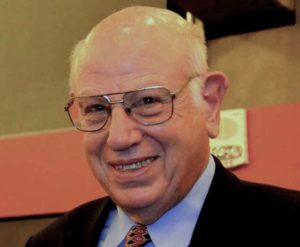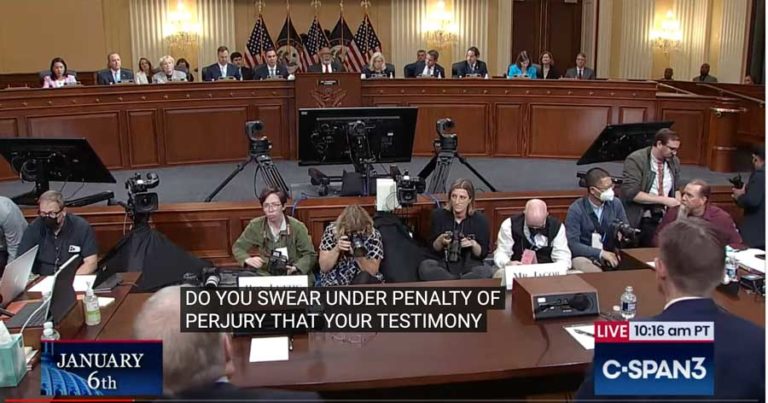It can’t save democracy, but it is exposing the threat-in-chief
By Herbert Rothschild for his Relocations column on Ashland.news
In his June 8 offering, New York Times columnist David Brooks declared that the goals of the House committee investigating the insurrection on Jan. 6, 2021, “are pathetic.” But the goals he summarily dismisses are not the committee’s goals. They are ones attributed to it by his colleagues at the NYT and others, who claim the goals are partisan, an attempt by Democrats, as Brooks puts it, to “use the events of Jan. 6 as campaign fodder.” Might it be too much to ask someone who passes himself off as a trustworthy intellectual to visit the committee’s website (january6th.house.gov/about) to see what its charge is?
Its first charge focuses on discovering why Capitol security was so sparse despite some intelligence warning of an attack. Given that the assault put every member of Congress at risk, that Republican Vice-President Mike Pence was its primary target, and that frightened Republicans such as House Minority Leader Kevin McCarthy were on the phone begging White House staff to get President Trump to call off the attackers, one might conclude that every member of the House and Senate would have endorsed an inquiry with that purpose. Only a partisan concern that the committee’s other charges, which focus on the attack itself and how the attack was fomented, would discredit Trump and all those who abetted his Big Lie could persuade most of them to oppose a fact-finding process pointing toward “improv(ing) the security posture of the United States Capitol Complex while preserving accessibility of the Capitol Complex for all Americans.”
Brooks’ central argument is that “We don’t need a committee to simply regurgitate what happened on Jan. 6, 2021. We need a committee that will preserve democracy on Jan. 6, 2025, and Jan. 6, 2029.” He says that he wants an inquiry into the present and future activities of those who believed the Big Lie and were willing to disrupt democratic processes to give the Presidency to Trump. “Many of them are running for local office to be in a position to disrupt future elections. I’d like the committee to describe who they are, what motivates them and how much power they already have.”
Doesn’t Brooks understand that what he is calling for is nothing less than a Congressional investigation into the Trump-led Republican Party itself? At one point he seems to. “We don’t need a criminal-type investigation looking for planners or masterminds as much as we need historians and scholars and journalists to help us understand why the American Republican Party, like the Polish Law and Justice party, or the Turkish Justice and Development Party, has become a predatory semi-democratic faction.” Note, there he doesn’t say Congress should do that job, but in the very next paragraph he does: “We need a committee to explore just how close America is to rampant political violence.” Does he really believe that such a Congressional inquiry is appropriate? Can one imagine anything more partisan than that?
Enough of David Brooks. Let’s re-focus on what the January 6 committee is doing and why it’s important — indeed, critical.
Judging by its first two public hearings, the committee isn’t saying what everyone already knows. There have been news reports and there have been criminal cases against many of the attackers. But until now we have not had an evidence-based, comprehensive and coherent account of what happened on Jan. 6, much less the planning and actions that led to it.

Before the committee’s initial presentation, I had only a vague understanding of the pivotal role of the Proud Boys, and to a lesser extent the Oathkeepers, in orchestrating the assault. Did you know — I didn’t — that from 250 to 300 Proud Boys began walking down the Mall to the Capitol before Trump even began his speech at the Ellipse? That, coupled with the evidence the committee presented of their advanced planning, including a clandestine meeting with the Oathkeepers, should discredit the notion that the attack was the spontaneous actions of protestors who simply got carried away.
Additionally, the testimony of so many Trump insiders, including his Attorney General and campaign manager, that they told him the election was fair and to stop pushing the Big Lie is not mere confirmation of what we all knew about the election. It establishes Trump’s determination to defy its outcome. This, in turn, supports the committee’s primary contention that when Trump called his foot soldiers to D.C. on Jan. 6, he knew it was not to rectify an injustice but to abort by violence Congressional certification of Biden’s legitimate victory.
As Jonathan Capehart pointed out when he and Brooks discussed the commission on the PBS News Hour a week ago, because we’ve heard only a small portion of what the committee will present, it’s presumptuous to proclaim its unimportance. What we most want to hear, I believe, is its case for placing the primary blame on Trump for the assault on the Capitol. We’ve had a glimpse of the case. Now we want it laid out for us. Then we’ll know whether the Justice Department should prosecute him for sedition.
I can imagine no more important matter for Congress to investigate than whether a sitting president conspired to overthrow our democracy.
Herbert Rothschild is an unpaid Ashland.news board member. Email him at herbertrothschild6839@gmail.com.


